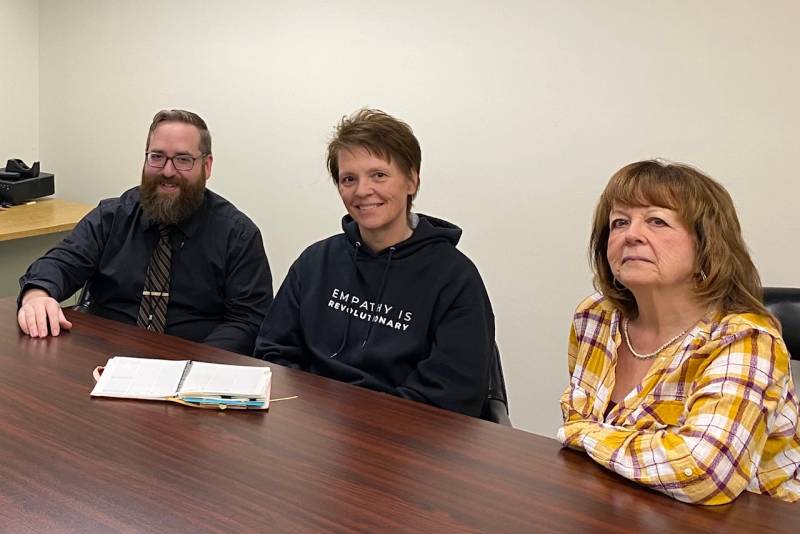
Editor’s Note: This is the fourth in a series of articles for May’s Mental Health Awareness focus. Despite it being the last day of the month, no topic as important as mental health can be hemmed into such a short time span anyway, as Genesee County Mental Health Director Lynda Battaglia says. Besides, this kicks off June’s “Rebuild Your Life Month,” which will continue with additional articles.
Little did anyone know that Cheryl Netter suffered from bipolar disorder throughout her life. And how could they? Netter herself didn’t know until she received an official diagnosis in her 20s.
“Finally, when I was diagnosed with something that I could explore, and educate myself on and find out, I was relieved. So many people will tell you otherwise, maybe, but I was totally relieved because I knew in talking with my gynecologist and my doctors through the course of the years, I knew there was something more going on inside me. I couldn't voice it, I couldn't put it into words, I couldn't express it per se,” she said. “I used to write a lot. And everything that I wrote about it was dark, death, all of that. And, you know, that's why I look back. And my mom was a big support to me. Not in the beginning. She didn't understand it either. But she started trying to educate herself. And in finally talking, she listened finally, and that's when she started the shift over to when she started sharing with me about her journey. Her mother had a nervous breakdown, my grandmother, back when my mom was growing up. And then my mother, when I was little, I remember her going through an episode, where she was taken away, and hospitalized as a ‘nervous breakdown,’ you know, back then that's what they called them, they didn't have all these diagnoses. And so it was a genetic thing.”
Throughout school and later in her working life, the mask she wore on the outside and the roles she played belied her very low self-esteem and depression. Netter was always the lead in school plays, worked in retail, gravitated toward leadership roles, got married, had two daughters, and from all appearances, she looked “fine.”
She suffered from deep depression, had been hospitalized four times and put on lithium. Abusive relationships and substance abuse -- a path that kept her sinking lower and lower -- all led Netter to the eventual thought that everyone around her would be better off “without me,” she said.
At one of her lowest points, Netter tried to end her life.
“I was in a coma for three days,” she said during an interview with The Batavian. “There is hope out there. I’m living proof of it. There are people out there, you just have to find them.”
Oftentimes, when one is struggling with depression and feelings of hopelessness, isolation is the easier thing to do, she said. But taking that first step will lead to the next one. Her lifeline has been faith in her higher power, God.
“And I know, without a doubt, it's only by his grace, I'm here. I can honestly say that because I have had the opportunity to impact others. With what I've come through. I've never been afraid to talk about it. I've never been afraid to tell people my story. I've never had a fear of people looking at me like 'oh, geez,' I just have never had that fear because I know where my story comes from,” she said. “It's been a journey. And it will be lifelong.
“I do hope coaching. I can’t walk for them, but I can walk with them,” Netter said. “But I can support you with that empathy piece, I think.”
Netter is a hope coach through City Church. A hope coach is a believer in Christ who is devoted to helping others to achieve their fullest potential and who will encourage one to have hope in oneself and God by faith. A hope coach is not a counselor or therapist.
For more information about this program, call 585-343-6895.
Peter Mittiga, deputy director of Genesee County Mental Heath, said that therapist numbers are bouncing back from COVID days, and that has opened up more availability for appointments at the mental health facility on East Main Street in Batavia.
“So I'm really excited about this, and I think it'd be great for the community just knowing, we have walk-in hours every day. Yes, you can be seen right away. But then, currently, you might have to book out two or three weeks for your next appointment,” he said. “But once we are fully staffed, then get right in and start therapy right away, which is great. “Or if somebody is doing very well, they might say, hey, can I see you monthly just to check in, and that's fine, too.
"And then also individuals that have been in therapy for a while they feel like they don't really need the therapy, if they want to get through with medication. They can be enrolled in our medication management program," he said. "So we have a nurse who will check in with them periodically, but they primarily just come here and they see a doctor and stay on medications for three months. And those are much shorter appointments. So it's not a 45-minute therapy appointment, it's just a really quick check-in with the nurse to see if things are okay. And if that individual ever wants to go back into therapy, we link them up.”
Local Resources
For more information about mental health services in Genesee County, call 585-344-1421 or go to Mental Health Services
For services at the Mental Health Association of Genesee and Orleans Counties, call 585-343-2611, or go to MHA
For more information from the Rochester-based National Alliance on Mental Illness, go HERE
In a mental health crisis, call or text 988 for resources.
